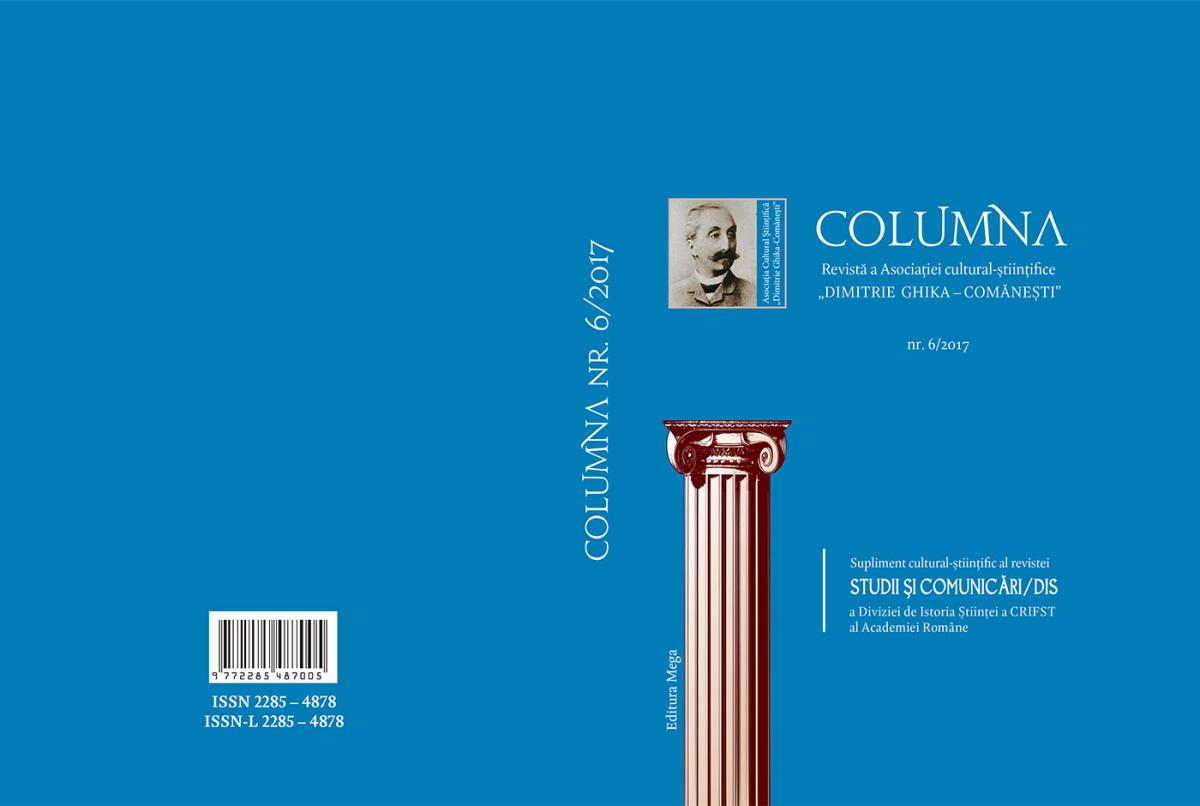Aspecte iatro-istorice ale medicinei brașovene din prima jumătate a secolului al XX-lea în Țara Bârsei. Mentori de școală românească
Iatro‑Historical aspects of Braşoven Medicine from the first half of the 20th Century to the Barsay Country – Romanian School Mentors
Author(s): Cristina-Anca DăscălescuSubject(s): Cultural history, Essay|Book Review |Scientific Life, Health and medicine and law
Published by: Asociația Cultural Științifică „Dimitrie Ghika-Comănești”
Keywords: holistic treatment; romanian school mentors;
Summary/Abstract: The Braşovean medical work at that time is meant to be the quintessence of the desire to change in treating the disease. If in the past the causes of „Disease of Civilization” were infant mortality and water epidemics generated by faulty hygiene of the home and eating. Subsequently, the industrial revolution led to a change in the lifestyle and implicitly the diseases generated by it.Being a doctor is an honor or a challenge? Medical art comes to complete a culture based on the history of tradition. Presenting a distinct, sanogenic lifestyle, today medicine ultimately desires the holistic treatment of the human being. During this period, the state supports the sanogenic approach and the hospitals are trying to experiment and treat the patient on scientific basis. Then there are also the great Romanian school mentors, as emblematic figures for the patients’ health and medical professionalism. The research of the iatro-historical documents related to the studied period was achieved both by quantitative and qualitative research offered by the Institute of History of Medicine, the National Archives,the Library of History of Medicine of the Bucharest Public Health Institute, the Library of the George County Library Bariţiu „University of Brasov, the Digital Library of the Central University Library in Cluj-Napoca and the Bucharest University Ecological Library The qualitative research included case studies, journals, historiography. The quantitative research has led to precise, rigorous, representative data on the iatro-historical aspect of Romanian medicine in the studied period.Prof. dr. Ioan Goia, (1892–1982) – professor of Romanian medical school – prestige, science and abnegation. The Grand Professor formed generations of national physicians with national and international reputation. In collaboration with Professor Iuliu Haţieganu, he wrote the first medical books in Cluj and 150 scientific medical papers: Propedeutics and Medical Clinic, Treaty Elementary semiology and medical pathology, outbreak infection, subsequently translated into French. He held preventive medical conferences both in his native village and in many other localities, where he was listening to medical advice on hygiene, health and health care, and on public health. Promoting holistic medicine, he also cared for the therapy of the soul, being a devoted son of the Church but a friend and trainer of the Metropolitan Nicholas Colan Dr. Gheorghe Baiulescu, from medicine to the prefect’s institution. From a prestigious family of Brasov, Dr Gheorghe Baiulescu was known as a family doctor but also a professor of hygiene. In his preventive medicine activity he founded the first hydrotherapy institute (1895), he developed a special treaty called „Hydrotherapy,” edited the newspaper„Health”. Physical health was always a desideratum of struggle for the good of the native city. For this reason on August 16, 1916, when the Romanian Army entered Brasov, Dr. Gheorghe Baiulescu became the first Romanian mayor of Brasov, and after the Union made in 1919, he became the first Romanian prefect of the county. The big doctor also had a tree genealogical morally and spiritually exceptional. His father, Father Bartolomeu Baiulescu. „Father in the noblest sense of the word, the priest, according to the order of Melchizedek, he served with godliness and unforgiveness at the altar of the Lord for half a century, because of his professional probity was also the secretary of Andrei Saguna Mother, Mrs. Elena, Was a remarkable figure through her work as a editor at „Familia” magazine where she advises women on money managemen tand during the memorandum she was elected unanimously the chairman of the Romanian Ladies’ Political Committee
Journal: COLUMNA
- Issue Year: 2017
- Issue No: 6
- Page Range: 517-532
- Page Count: 16
- Language: Romanian

